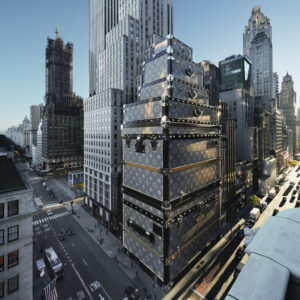About Time: You Explored Barbados’ Jewish HeritageBy Suzi Malin
On my recent trip delving into the history of the Jewish people in Barbados, I learnt about the tragic history of two peoples – the Jewish and Black races; both uprooted from their homelands and cast together as destiny would have it on this Caribbean island. Because there are so few Jews living in Barbados today, many are unaware of its rich history in terms of providing a haven for the Jews fleeing persecution.
The Spanish inquisition in the 17th century was the cruellest episode in Sephardic history, whereby the Jews were tortured and killed for their faith over a period of 300 years. The persecuted attempted to flee and as a result were flung far across the world from India to Brazil and to the Caribbean.

The Jews who arrived in Barbados in 1628 were those fleeing from the Portuguese who brought the inquisition to Brazil. Oliver Cromwell had requested that the Jews expelled from Brazil come to the British colony of Barbados where he would give them citizenship.
The Jews, in return, with their technological experts, would bring sugar to the island and make its cultivation efficient. Due to this engineering contribution, Barbados became the world leader in sugar production. In 1654, nearly 300 Jews lived in Barbados but in 1668 due to jealous British business men, the Jews who had enriched the economy immeasurably, were banned from all forms of trade and forced to live in a ghetto in the capital.
The streets of the ghetto were known as Tudor, James and Swan Street. The latter, also known as Jew Street, is where merchants set up lively street markets which, although no longer inhabited by Jews, are still active today.

This area was also where jews set up the first synagogue, the Nidhe Israel and established the oldest Jewish burial ground in the western world. Tragically in the hurricane of 1831, a massive hurricane devastated much of the island including the synagogue. This prompted emigration of the Jewish community which continued for nearly 100 years until 1929 when the synagogue was sold to a local lawyer as there were no more attendees. The synagogue has since been lovingly restored to its former glory and exists today.
It wasn’t until 1931 that a new immigration arrived from Poland followed by 40 families fleeing rising antisemitism and Hitler. Again Barbados became a haven for the Jews. Much is known about the savage history of slavery without knowing that the Jewish ghetto was a stones throw from the slave market and from the harbour where half starved Africans disembarked and were prepared for sale.
Close by there is a plaque commemorating the spot where slaves fleeing cruel masters were brought to be publicly whipped for the crime of escape . So much of the painful history of both races was concentrated into a such small area of the island.
The heartbreaking history of the black people in Barbados is well documented and now huge research is being done into the archives of the little known history of the Jews. The sprawling, old leprosy Colony has been converted into the centre for Jewish archives where their memory can be preserved. The archives on 800 Jews dating back to 1635 are contained in crumbling, leather-bound books which are works of art in themselves. They are being digitised page by page by workers who sit in the dark all day undertaking this epic task.Most tourists lying on sandy beaches are not aware of the history of the island or the current endeavour to research its Jewish past.
There is a Barbados of cafes, nightclubs, excursions and wonderful hotels like Cobblers Cove, a luxurious boutique hotel located on the west coast of Barbados, where we stayed.

We enjoyed some pretty amazing restaurants, which had the all industrial cool of eateries in New York or London. The highlight of our restaurant experience was the high-end Champers, which has breathtaking ocean views and delicious seafood.
This is a magical holiday resort and whether the intention is to trace the island’s rich past or to enjoy its wonderful hotels and restaurants – Barbados, has to be the best of all the Caribbean islands. For me it has been an eye-opener because although I have holidayed on this magnificent island before, I did not fully appreciate the enormity of gift to humanity and to mankind made by the the slave liberator William Wilberforce.
See more here: https://www.visitbarbados.org/







